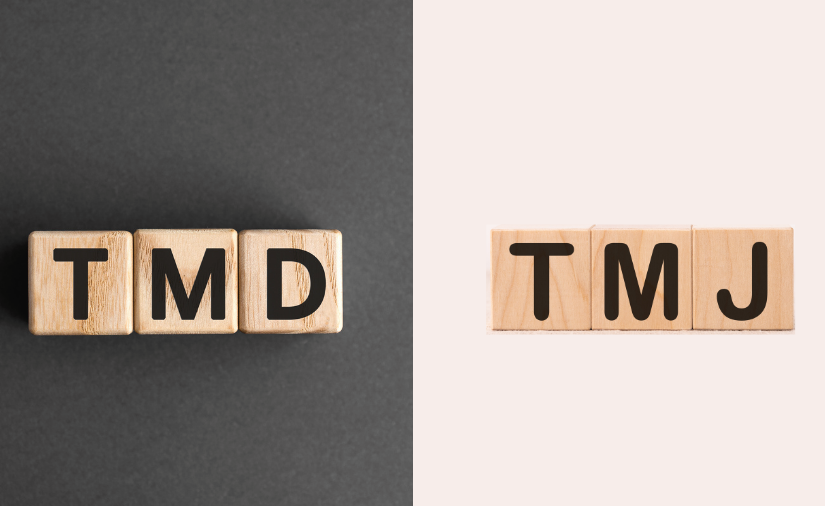By Dr. Elizabeth Eggert
Our upper and lower jaw bones help our bodies perform many important functions. They help us speak, chew, and yawn. Consequently, our quality of life is directly impacted when our jaw is even slightly irritated or inflamed. When it comes to jaw disorders, there is often confusion between the terms TMJ and TMD. This post will help you decipher between these two terms.
What is TMJ?
TMJ refers to the temporomandibular joint itself, a joint that acts like a sliding hinge, connecting your jawbone to your skull. The lower jawbone (mandible) has two condyles that fit at the base of the skull. This joint can be found on both sides of your head, in front of each ear. The TMJ allows the jaw to open and close so you can speak, chew, and yawn. While many people claim to suffer from TMJ, this term actually refers to the joint as opposed to the joint disorder.
What is TMD?
TMD on the other hand, stands for temporomandibular disorder, a disorder of the temporomandibular joint. This joint is easily irritated by stress, jaw clenching, teeth grinding, and arthritis and is susceptible to misalignment, dislocation, or permanent changes as a result of crooked teeth or blunt trauma. Depending on the cause, discomfort can range from mild to severe. However, just because you’re not experiencing severe pain in your jaw doesn’t mean you should just “ride it out.” Ignoring even mild jaw discomfort can result in deterioration of the TMJ.
In our next post, we will cover the signs and symptoms of TMD and discuss how TMJ disorders are diagnosed. Stay tuned!
If you have any questions about TMD/TMJ or would like to schedule a recare visit with us, you can call our office today at 651.482.8412. Dr. Elizabeth, Dr. Jeff and our amazing team at Eggert Family Dentistry are here and ready to address all of your dental concerns and needs with our vast experience, the latest technology and all of the comforts to make each of your visits a great experience!


 Sleep apnea
Sleep apnea If a patient comes into our office with jaw pain, Dr. Elizabeth or Dr. Jeff evaluate many things, including the patient’s teeth and jaw. Because sinus problems can be a contributing factor to teeth and jaw discomfort, if their examination is inconclusive, Dr. Elizabeth or Dr. Jeff will refer our patient to an ENT for further evaluation.
If a patient comes into our office with jaw pain, Dr. Elizabeth or Dr. Jeff evaluate many things, including the patient’s teeth and jaw. Because sinus problems can be a contributing factor to teeth and jaw discomfort, if their examination is inconclusive, Dr. Elizabeth or Dr. Jeff will refer our patient to an ENT for further evaluation. Another common cause of jaw pain is a disorder of the temporomandibular joint (TMJ). At Eggert Family Dentistry, we most commonly treat
Another common cause of jaw pain is a disorder of the temporomandibular joint (TMJ). At Eggert Family Dentistry, we most commonly treat 



